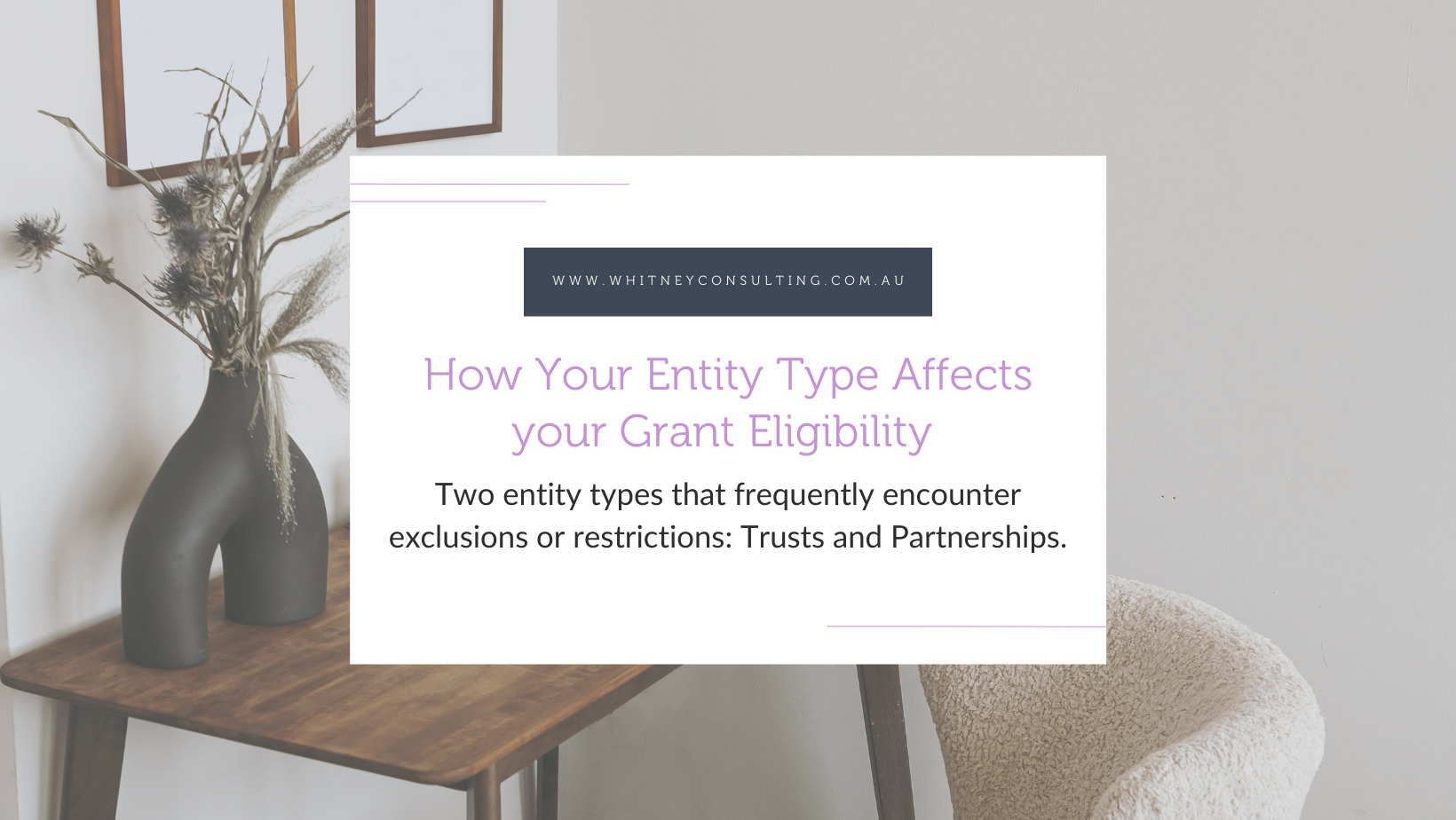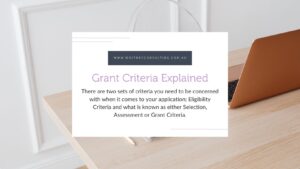Grant applications can be complex and confusing, especially when it comes to determining eligibility. Grant programs specify which types of organisations can apply for funding – often exclusionary criteria may exist regarding certain entity types, as well as additional rules or regulations which must be observed.
In this blog post we’ll look specifically at two entity types which are often excluded or restricted in some way: Trusts and Partnerships.
Trusts
Trusts may not allow the entity to enter into a legal agreement to accept funding from the government. For this reason, Trusts are sometimes ineligible OR they need to attach their Trust Deeds to prove that they can accept the funding. Often the guidelines will say that Trusts are only eligible if it is an incorporated trustee applying on behalf of a trust – this is all related to being able to enter into the legal agreement with government that governs the use of the grant.
Partnerships
Likewise, a partnership is not considered a separate legal entity – the entity itself doesn’t pay income tax on the income earned – each partner pays tax on the share of the net partnership income they receive. So entering into a legal agreement to accept funding and GST etc can be complicated and not something government necessarily wants to deal with.
Tips for Trusts and Partnerships
Before applying for grant funding as part of a trust or partnership entity, it is crucial that you conduct an in-depth eligibility analysis. Grant guidelines may not always provide clear instructions so it may be worth reaching out directly to the funding body to verify your eligibility – sending an email and receiving written response is solid proof for support of an application.
Recently, a client of ours received a call from the funding body after they submitted their application, saying the funding body believed they weren’t eligible. But, as professional grant writers, Whitney Consulting had already triple checked – as such, the client had (prior to applying) secured an email from the funding body confirming that an Incorporated Trustee was eligible AND an email from the client’s Accountant confirming that the client’s entity was indeed an Incorporated Trustee! The client sent those emails back to the funding body, who then awarded them hundreds of thousands in grant funding – showing the importance of checking and confirming eligibility BEFORE you apply.
In summary, Trusts and Partnerships often encounter additional hurdles or are excluded from certain grant programs, making it essential for them to carefully review eligibility criteria, seek clarification from funding bodies if needed and document any responses they receive. Good luck!






